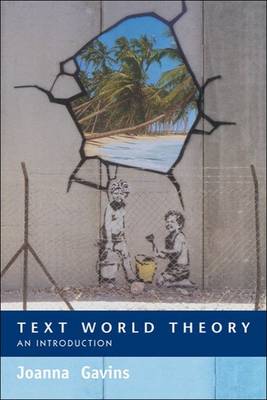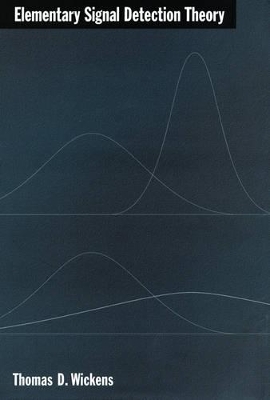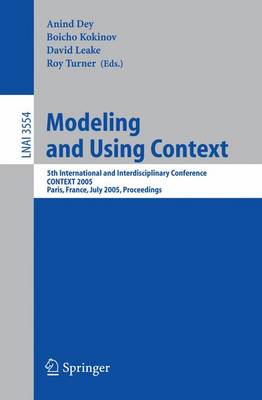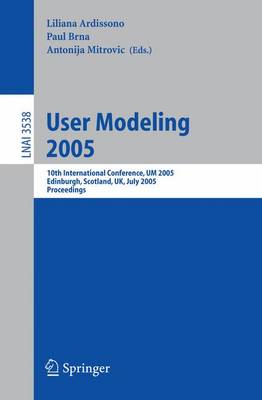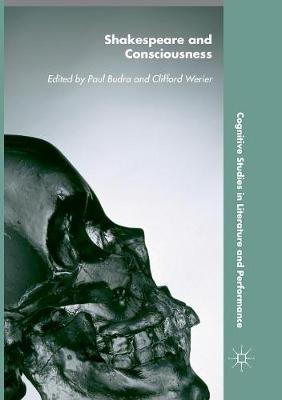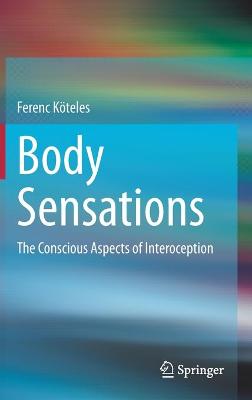Text World Theory is a cognitive model of all human discourse processing. In this introductory textbook, Joanna Gavins sets out a usable framework for understanding mental representations. Text World Theory is explained using naturally occurring texts and real situations, including literary works, advertising discourse, the language of lonely hearts, horoscopes, route directions, cookery books and song lyrics. The book will therefore enable students, teachers and researchers to make practical us...
Sternberg's experiment has generated a significant amount of buzz in the college admissions world and has been the subject of recent newspaper articles in ""The Guardian"" (UK), ""The Boston Globe"" and ""Inside Higher Education"". Dr. Robert J. Sternberg is one of the most vocal critics of ""the intelligence testing industry"" which defines intelligence rather narrowly (i.e., a high score on a paper and pencil intelligence test). For nearly 30 years, Dr. Robert J. Sternberg has been recognized...
Aimed at practising clinicians and graduate students in psychology, "Career Assessment" provides the career assessor with a new model with which to conduct more valid and useful career assessments. The author integrates what he feels are the three most important areas of career assessment - interests, abilities and personality - and discusses how to measure each area. Case examples, choosing appropriate test measures, principles for interpreting test scores, preparing the assessment report and p...
Introduction to Learning and Behavior, Loose-Leaf Version
by Russell A Powell, P Lynne Honey, and Diane G Symbaluk
Understanding Counterfactuals, Understanding Causation (Consciousness & Self-Consciousness)
How are causal judgements such as 'The ice on the road caused the traffic accident' connected with counterfactual judgements such as 'If there had not been any ice on the road, the traffic accident would not have happened'? This volume throws new light on this question by uniting, for the first time, psychological and philosophical approaches to causation and counterfactuals. Traditionally, philosophers have primarily been interested in connections between causal and counterfactual claims on the...
Unlock your brain's potential using mind mapping Mind mapping is a popular technique that can be applied in a variety of situations and settings. Students can make sense of complex topics and structure their revision with mind mapping; business people can manage projects and collaborate with colleagues using mind maps, and any creative process can be supported by using a mind map to explore ideas and build upon them. Mind maps allow for greater creativity when recording ideas and information wh...
Signal detection theory, as developed in electrical engineering and based on statistical decision theory, was first applied to human sensory discrimination about 40 years ago. The theory's intent was to explain how humans discriminate and how we might use reliable measures to quantify this ability. An interesting finding of this work is that decisions are involved even in the simplest of discrimination tasks-say, determining whether or not a sound has been heard (a yes-no decision). Detection th...
Modeling and Using Context (Lecture Notes in Computer Science, #3554) (Lecture Notes in Artificial Intelligence, #3554)
by Anind Dey
Context is of crucial importance for research and applications in many disciplines, as evidenced by many workshops, symposia, seminars, and conferences on specific aspects of context. The International and Interdisciplinary Conference on Modeling and Using Context (CONTEXT), the oldest conference series focusing on context, provides a unique interdisciplinary emphasis, bringing together participants from a wide range of disciplines, including artificial intelligence, cognitive science, computer...
User Modeling 2005 (Lecture Notes in Computer Science, #3538) (Lecture Notes in Artificial Intelligence, #3538)
by Liliana Ardissono
The 33 revised full papers and 30 poster summaries presented together with papers of 12 selected doctoral consortium articles and the abstracts of 3 invited lectures were carefully reviewed and selected from 160 submissions. The book offers topical sections on adaptive hypermedia, affective computing, data mining for personalization and cross-recommendation, ITS and adaptive advice, modeling and recognizing human activity, multimodality and ubiquitous computing, recommender systems, student mod...
Attention in a Social World (Oxford Series in Social Cognition and Social Neuroscience)
by Department of Psychology Michael I Posner
TRUSTING THE TIDES is a practical and comprehensive guide to the emotions. It explains how our emotional structure is formed in childhood and also how there is no such thing as a 'bad' feeling -such as anger, envy, loneliness etc. Emotions sweep through us as tides sweep through the sea, and are a natural process. This remarkable and highly accessible book also offers a new approach we can all use to cope with our feelings, and many techniques we can put to useful effect.
Shakespeare and Consciousness (Cognitive Studies in Literature and Performance)
This book examines how early modern and recently emerging theories of consciousness and cognitive science help us to re-imagine our engagements with Shakespeare in text and performance. Papers investigate the connections between states of mind, emotion, and sensation that constitute consciousness and the conditions of reception in our past and present encounters with Shakespeare's works. Acknowledging previous work on inwardness, self, self-consciousness, embodied self, emotions, character, and...
As a manifestation of a 'cognitive turn' observable in all social sciences, "Cognitive Economics" is concerned with the beliefs and mental operations held by actors placed within a dynamical and strategic environment. It appears as a synthesis of an educative research program, dealing with crossed expectations of actors, and an evolutionist research program on collective learning processes. The book mainly aims at extending the framework of game theory in order to better fit the results of rapid...
Mechanisms in Classical Conditioning
by Schmajuk Nestor and Nestor Schmajuk
The monograph aims to present the recent scientific knowledge on body sensations, i.e., conscious experiences that are localized or felt in the body from an internal perspective, regardless of their sensory origin. It summarizes the basic philosophical, evolutionary, neuroanatomical, psychological, and pathological aspects of the topic. Moreover, related phenomena, such as emotions, the placebo and nocebo effect, complementary and alternative medicine, and mind-body practices are discussed from...

